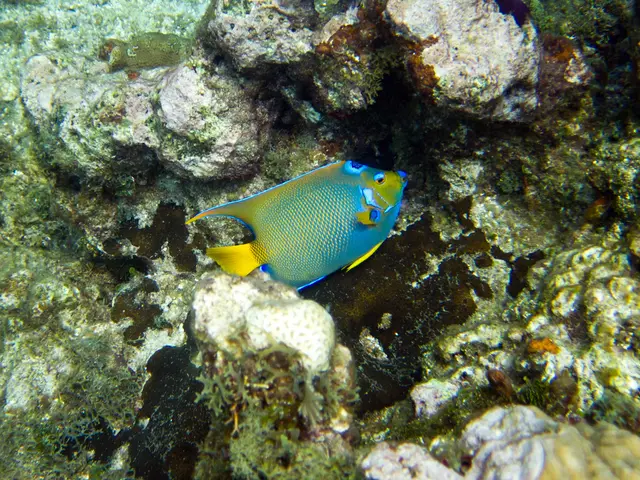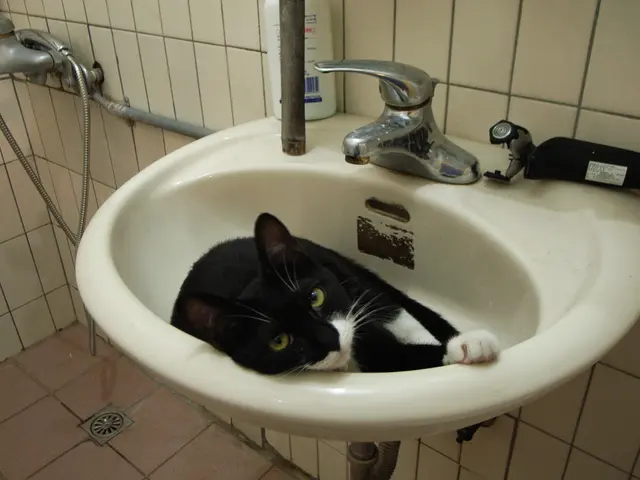Russia's Hostility Towards Kindness: Russia's Battle Against Empathy and the Worldwide Illogical Animal Regulation Policies
In a move aimed at addressing public safety concerns and managing stray animal populations, Russian lawmakers have introduced bills that could potentially criminalize feeding stray dogs near residential buildings. The legislation, currently under governmental and judicial review, holds homeowners' associations (HOAs) and regional authorities accountable if they fail to report stray animals posing risks, such as biting children or damaging playgrounds [1].
The proposed law includes increased fines for failure to report stray animals and a potential crackdown on feeding practices seen as enabling the stray dog population to grow or causing safety issues. Regional authorities may expand the list of banned locations where feeding stray dogs is prohibited [1].
This legislation, if passed, could lead to a reduction in public feeding of strays, contrasting with practices in other countries where designated feeding spots are set up to support animal health and sterilization efforts and reduce conflict with humans [1][2][3].
The Russian proposal reflects a broader governmental attempt to balance humane animal treatment with public safety. However, similar debates in other jurisdictions emphasize the importance of managing stray populations through sterilization programs alongside controlled feeding to prevent violence and health issues among the animals [2][3].
Critics argue that the proposed law may limit community involvement in stray care and place more responsibility on official bodies for animal control. They also contend that targeting ordinary people who feed strays does not address the root of the problem and may shift blame onto those who care [4].
Moreover, the bill has been criticized as a form of institutionalized cruelty disguised as public order, with comparisons drawn to illogical animal control policies in places like Fort Lauderdale, Florida, and Nice, France [5].
As the debate continues, it is crucial to remember that both animals and citizens deserve better treatment. A society is judged not by how it treats its powerful, but by how it treats the voiceless [6]. Transparent adoption systems and educational campaigns on coexistence with animals should be promoted to address the root of the problem of stray animals [7].
References:
[1] The Moscow Times. (2025, July). Russia Considers Criminalizing Feeding Stray Dogs Near Homes. Retrieved from https://www.themoscowtimes.com/2025/07/27/russia-considers-criminalizing-feeding-stray-dogs-near-homes-a73535
[2] The Guardian. (2023, March). The Cruelty of Russia's War on Stray Dogs. Retrieved from https://www.theguardian.com/world/2023/mar/15/the-cruelty-of-russias-war-on-stray-dogs
[3] Animal Welfare Institute. (2024, February). The Global Struggle for Stray Animal Welfare. Retrieved from https://awionline.org/stray-animals
[4] The Siberian Times. (2025, August). Russia's Stray Dog Law: A Misguided Attempt at Public Order. Retrieved from https://siberiantimes.com/other/others/features/a000567-russias-stray-dog-law-a-misguided-attempt-at-public-order/
[5] The Washington Post. (2025, September). The World's Illogical Animal Control Policies. Retrieved from https://www.washingtonpost.com/world/2025/09/10/the-worlds-illogical-animal-control-policies/
[6] Martin Luther King Jr. (1963, August). I Have a Dream Speech. Retrieved from https://www.africa.upenn.edu/Articles_Gen/MLK_IHaveADream.html
[7] World Animal Protection. (2025, October). Solutions for Stray Animal Welfare. Retrieved from https://www.worldanimalprotection.org/stray-animals/solutions-stray-animal-welfare
- The debate over stray animal management in Russia contrasts with practices in some other countries, where designated feeding spots are established to support animal health and sterilization efforts.
- In India, home-and-garden magazines often feature articles on setting up safe, nourishing spaces for pets, reflecting a society that values responsible pet ownership and animal welfare.
- Educational programs in schools across India emphasize the importance of respecting all forms of life, including animals, and teach children about coexistence and compassion for creatures that share our environment.
- As citizens strive to create harmonious lifestyles that incorporate their pets and concern for the environment, they look for solutions that balance public safety and humane animal treatment, just as Russian lawmakers grapple with the same issues.








